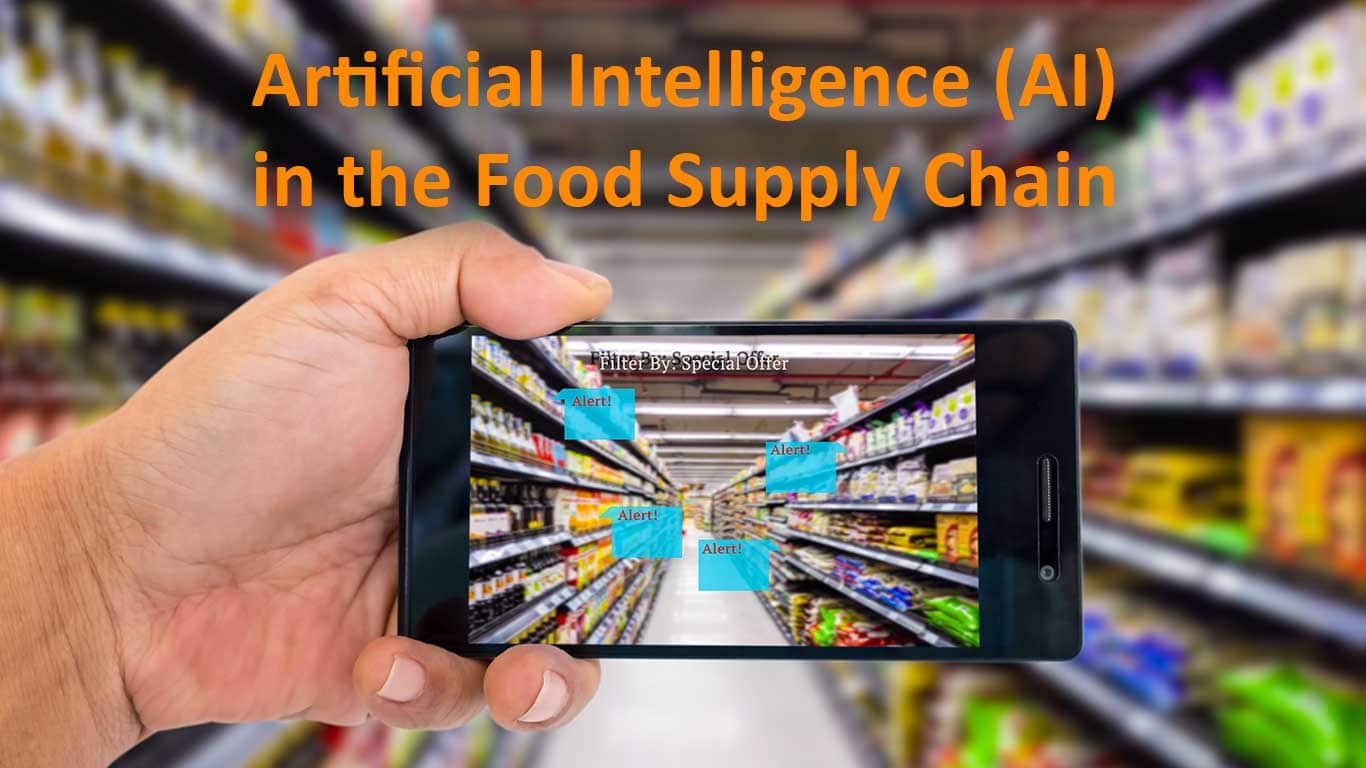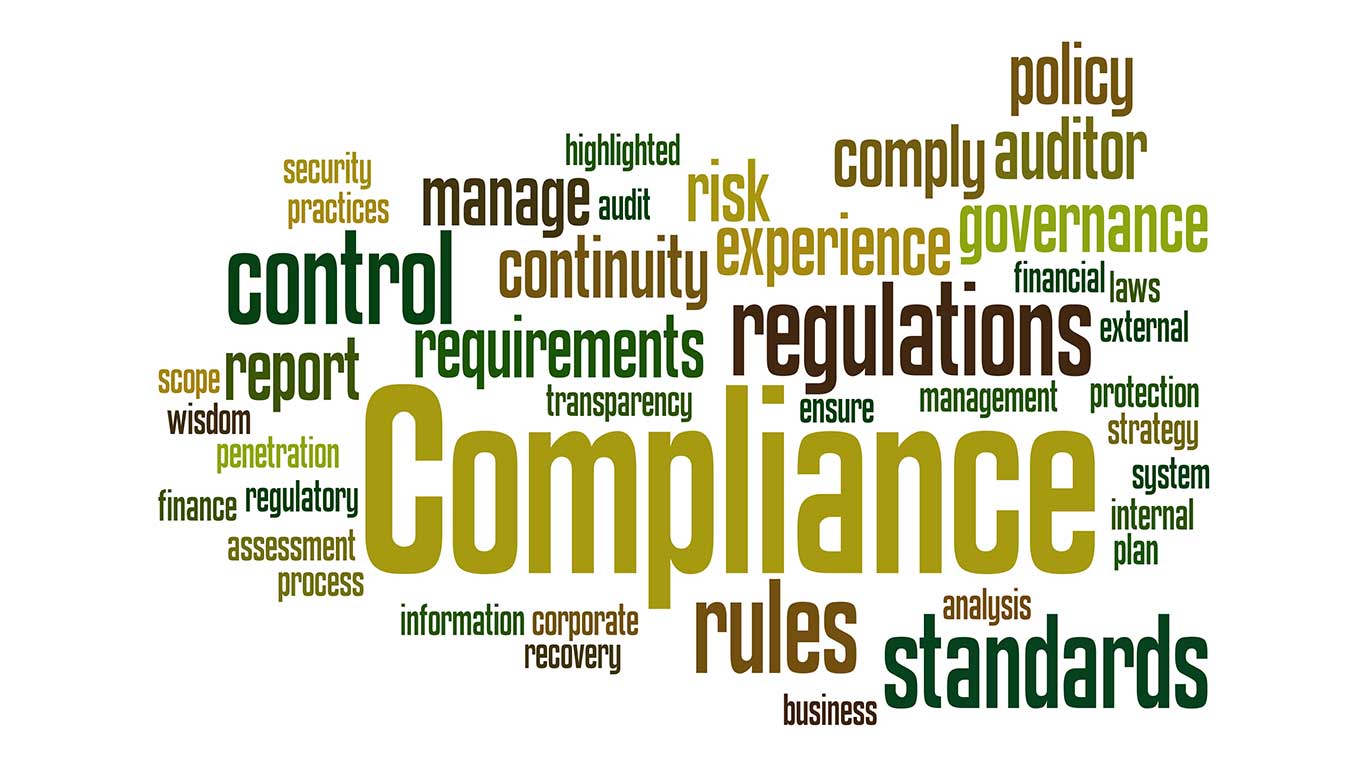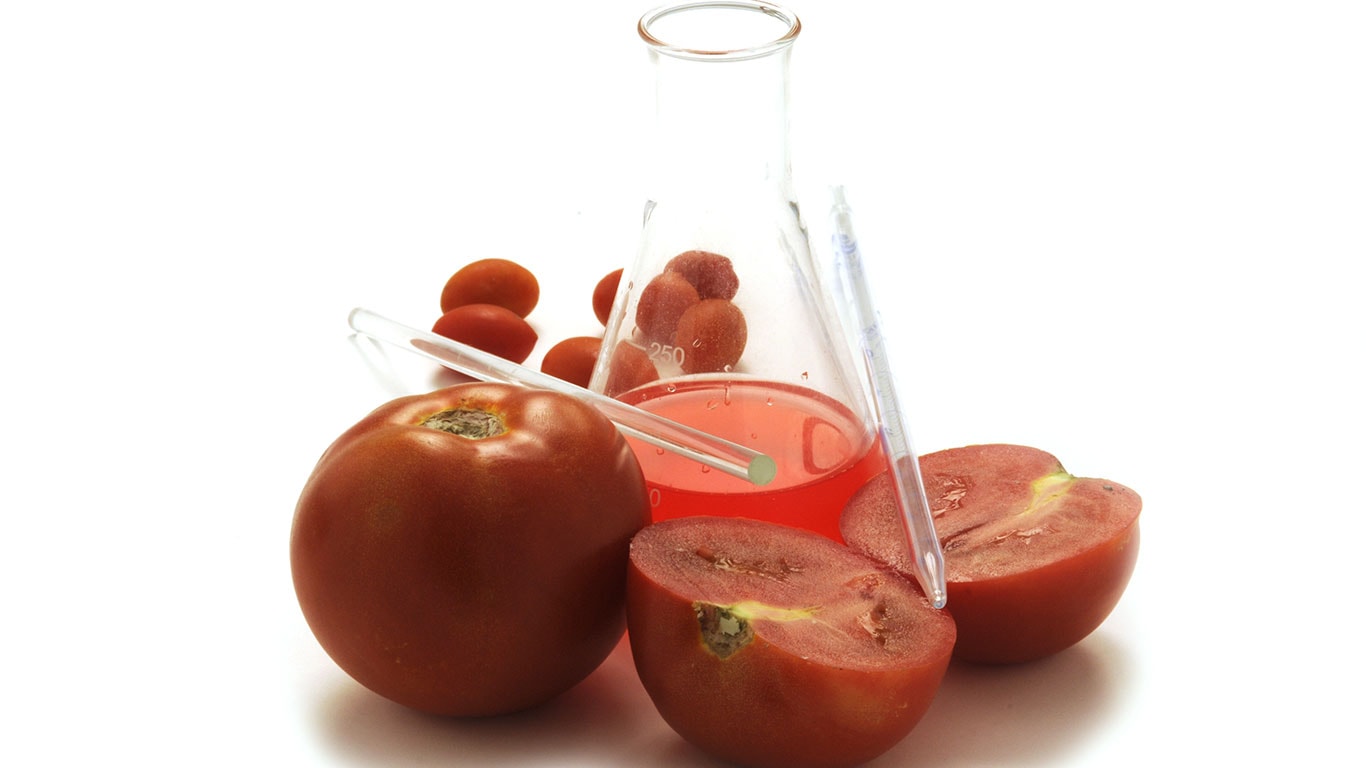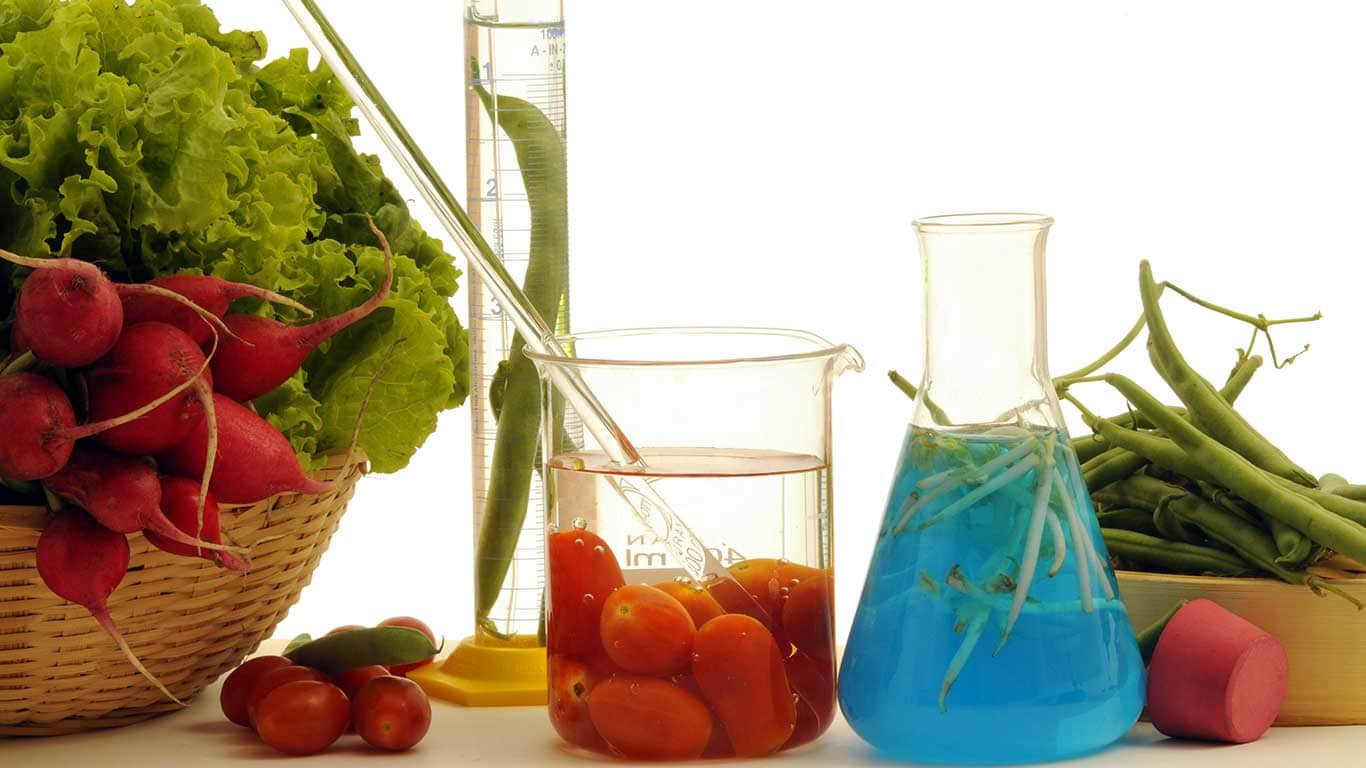AI is growing both in the breadth of applications to supply chain management and the number of food and beverage companies utilizing it for everything from supply chain forecasting to customer visibility.
In 2020, demand for AI software is expected to grow by 154% over last year. AI software is being utilized in dozens of industries: healthcare, travel, retail, financial services, and others. And, since both food tech and logistics and transportation are two of the top industries for AI application, it’s no wonder that food and beverage companies have so many potential use cases for this technology.
Why food and beverage companies are turning to AI to improve supply chain management
The supply chain is the network of companies and systems that come together during the process of creating a product, up until it is sold. Suppliers deliver source materials to the manufacturers, who produce the products that are sold to consumers. But the supply chain doesn’t just consistent of the suppliers’ ingredients.
It’s more complex than that. The supply chain consists of:
Free E-Book
How Can Food Producers Strategize for Industry 4.0? Learn how to build a foundation that supports change and spurs growth!
- Information
- Products and ingredients
- Finances
Supply chain management coordinates all of these different activities, sources, and communications. It’s not just about procuring and tracking ingredients, but also about improved communication with suppliers.
There’s a lot at stake with supply chain management. The top food recalls of 2019 were for between thirty thousand and 11 million pounds of food each, with Tyson having one of the largest recalls in recent history. Aside from food quality and safety, there’s the risk of arbitration and consumer boycotts when promises aren’t kept. One Iowa grain farmer was successfully prosecuted for organic fraud.
Even when no intentional foul play is at hand, it’s still essential for food and beverage companies to protect themselves against claims and lower their risk levels.
How AI aids supply management
While logistics, predictive analytics, and visibility remain some of the top use cases for AI in supply chain management, there are others as well. Let’s explore all of the key areas.
Supply chain planning and demand forecasting
One of the top applications is supply chain planning. AI improves supply chain planning by helping food and beverage companies to forecast demand against product supply and ingredient orders. The AI platform can take inputs from supply chain management professionals to develop algorithms that inform procurement decisions.
Delivery of ingredients to the appropriate manufacturing facilities can also be optimized, as AI allows for highly specific predictions around when and where resources are needed.
Warehouse and inventory management
AI algorithms can also help forecast demand on warehouse resources and analyze inventory against shipments going out and new product coming in. While SCM leaders have worked for decades to master their predictive models, AI can help add an additional layer of accuracy to decisions making around when to move product and how to make use of warehouse space.
Automated procurement
In a far-off (or not so far-off) future, we could see the size of procurement teams shrink as the use of automation grows. Procurement teams may be focused more on finding the right vendors and establishing vendor connections than decisions to get what’s needed from short supply chains.
That job could go to bots. Already, procurement bots can place orders with suppliers based on technical rules and automations. However, this is an AI application that hasn’t seen much traction yet, as most companies are still striving to make use of AI for improved demand forecasting and supply chain management—not yet talking to suppliers.
Quality assurance and protecting global food supply
Quality assurance is an enormously important application of AI in supply chain management, as companies are able to mitigate the risk of consumer illness when a product or ingredient is known to be contaminated, while protecting products that are known to be unaffected.
Cornell University and IBM are partnering up to utilize AI to learn how to better protect the global food supply, so that when some amount of product is contaminated, thousands or millions of pounds don’t have to needlessly go to waste.
According to their announcement, “Foodborne disease outbreaks and food spoilage are an ongoing global dilemma. With the application of metagenomics and analytics to food safety, the partnership aims to minimize the chance that hazardous food will reach consumers, prevent food fraud and reduce spoilage.”
Food and beverage manufacturers are utilizing AI through better predictions of what food has been contaminated, to make sure that these products don’t reach consumers.
Remove language barriers that threaten auditing and compliance
While many experienced professionals in the food and beverage industry can assume that AI might be able to help with demand forecasting, not very many people could guess about this next AI application: removing language barriers.
Language barriers can be a huge problem when communicating with suppliers over product specs, agreements, certifications, and other nitty gritty details. This later creates a potential risk for auditing and compliance issues. Maybe in your view, the supplier agreed to something that they actually didn’t agree to. Or you interpreted their explanation in a different way.
AI technology for supply chain management and procurement can alleviate the risk of foreign communication by reading foreign language data on your behalf and translating it into data that can be understood and utilized.
Driverless vehicles and other logistics optimizations
Driverless vehicles are already being tested at some warehouses and manufacturing facilities. This will undoubtedly grow. Driverless vehicles not only reduce the cost of manual labor, but they can also increase fulfillment efficiency while making a warehouse more environmentally friendly, which is especially useful when offsetting or lowering emissions is a company goal.
Tesla is working on a driverless semi-truck that has the potential to revolution warehousing, logistics, distribution, and transportation in every physical product industry – not just food and beverage.
There’s even a viral video of the driverless semi supposedly driving down a highway in the Bay Area.
Besides Tesla, Einride, Daimler and Volkswagen are also developing autonomous driving solutions.
Undoubtedly, as these advancements progress, they will hit warehouses across the globe long before they’ll ever be used by consumers. No legal approval is needed for the use of driverless technology inside of private warehouses, but we’re a long way off before we see our parents chauffeured around town by a driverless care.
Other logistical optimizations include improving warehouse layout and storage, knowing when to move product to different warehouse areas and locations, advanced shipping of products to locations where they’re predicted to be needed (the way Amazon does to get those Amazon Prime orders to customers on time), and more.
Across any industry, some of the top benefits of AI when it comes to logistics are:
- Predictive capabilities – SCM workers are able to know what product needs to be where and when.
- Robotics – Robots help with tracking, moving, and locating products.
- Better data – with AI, all forms of data can be made cleaner and more usable so that humans can make faster decisions without having to first process and spruce up the data.
Consumer visibility
One of the key use cases for AI in the food and beverage industry is offering better visibility into what consumers need and how frequently. Currently, data silos between marketing and product creation can negatively impact sales.
Better consumer visibility should be able to come from a variety of different sources: federal or demand forecasts for certain products and trends, private demand forecasts that manufacturers and brands can purchase, sales data from retailers, demand statistics from real product orders, and more.
Without AI, it would be nearly impossible for humans to integrate, clean, and utilize all of these disparate data sources. But with AI, product manufacturers can pull in all of valuable the data sources they can possibly get their hands on and feed them to a smart algorithm that helps them make better decisions in order to make sure products are available to consumers but don’t go to waste.
The worst consequences of a supply chain that lacks advanced processes and technology are:
- Inability to meet consumer demands for a product, frustrating retailers and consumers, and missing out on revenue.
- Products that go to waste and can’t be sold due to an oversupply, thus cutting into profits.
- Products being slow to arrive in the locations where they’re needed, slowing lead times and causing undue stress and transportation costs to increase.
- Warehousing costs unnecessarily rising due to poor warehouse utilization.
While the above applications of AI are still in their relative infancy, they all hold enormous potential for the food and beverage companies who use them effectively to streamline their supply chains.




